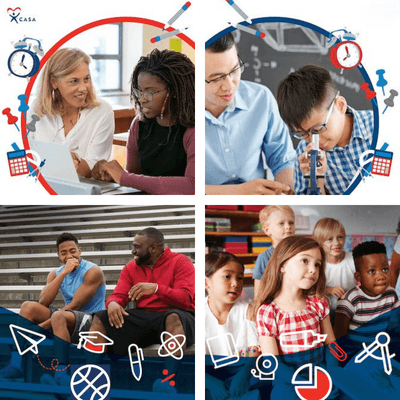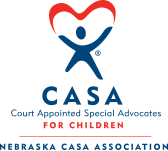
For children in foster care, stability can be an elusive concept. The upheavals of placement changes, shifting home environments, and the emotional toll of navigating the foster care system can make it challenging for these children to maintain a sense of normalcy.
Among the many areas of life affected by this instability, education stands out as a critical pillar that, if maintained, can provide a much-needed sense of continuity and support. Educational stability is vital in older youth's ability to learn essential skills as they transition into adulthood.
The Impact of Educational Instability
Children in foster care are more likely than their peers to experience disruptions in their education. These disruptions can include changing schools multiple times, missing significant amounts of class time due to placement changes, or even falling behind academically because of the emotional stress and trauma associated with their circumstances. Each school change can set a child back several months academically, and these setbacks accumulate over time, leading to poor educational outcomes.
For older youth in foster care, the stakes are even higher. As they approach the age of emancipation from the foster care system, their need for a stable educational environment becomes critical. At this age, they are preparing to enter the workforce, pursue higher education, or begin living independently. Without a stable educational foundation, these youth are at a significant disadvantage. They may struggle to graduate on time, lack the skills needed for employment, or be unprepared for the responsibilities of adult life.
Children with a CASA Volunteer do better in school and are more likely to graduate. VOLUNTEER to become a CASA or your DONATION allows us to recruit and train CASAs for the 1500+ children in Nebraska waiting for an advocate.
The Role of Educational Stability in Transitioning to Adulthood
Educational stability provides a consistent environment where youth in foster care can learn, grow, and develop the skills necessary for adulthood. When older youth can stay in one school and build relationships with teachers, counselors, and peers, they are more likely to succeed academically and socially. This continuity allows them to focus on their studies, participate in extracurricular activities, and receive the guidance they need to plan for their future.
A stable educational environment can help foster youth develop important life skills beyond the classroom. Time management, problem-solving, and goal-setting are just a few skills reinforced through a consistent educational experience. For foster care youth who may not have had stable role models or consistent support in other areas of their lives, the stability provided by school can be a crucial anchor.
In addition to these practical skills, educational stability supports the emotional and mental well-being of youth in foster care. School can serve as a safe space where they can find structure, predictability, and a sense of belonging. For many of these youth, the relationships they build at school may be some of their most enduring and supportive connections.
Strategies to Promote Educational Stability
Given the importance of educational stability for youth in foster care, it is essential to implement strategies that minimize disruptions and support these children in their educational journey. Here are a few key approaches:
- Prioritizing School Placement Stability: Whenever possible, make efforts to keep children in their current school when they enter foster care or experience a placement change. This may involve providing transportation to their original school, even if they move to a different neighborhood or district.
- Advocating for Educational Rights: Foster youth have specific educational rights that protect their ability to stay in their school of origin and receive appropriate educational support. Advocates, CASA volunteers, caseworkers, and caregivers should know these rights and work to ensure they are upheld.
- Providing Academic Support: Foster youth often need additional academic support to address any educational gaps caused by instability. Tutoring, mentoring, and after-school programs can provide the extra help these students need to succeed.
- Fostering Relationships with Educators: Building strong relationships between foster youth and their teachers, counselors, and school staff can significantly impact their educational experience. These relationships provide stability and support, helping youth feel more connected to their school community.
- Supporting Transitions to Higher Education and Employment: As older youth in foster care approach adulthood, providing them with the resources and guidance they need to pursue higher education or enter the workforce is crucial. College and career counseling, financial aid assistance, and vocational training programs can help these youth navigate the next steps in their lives.
Conclusion
Educational stability is not just a matter of academic success for youth in foster care; it is a critical component of their overall well-being and future prospects.
For older youth on the brink of adulthood, the consistency and support provided by a stable educational environment can make all the difference in their ability to transition successfully into the next phase of their lives.
By prioritizing educational stability and implementing supportive strategies, we can help these young people build the foundation they need for a bright and successful future.


